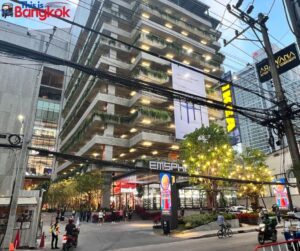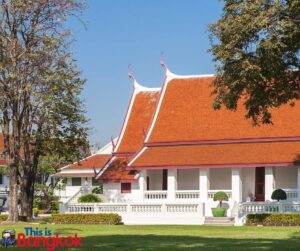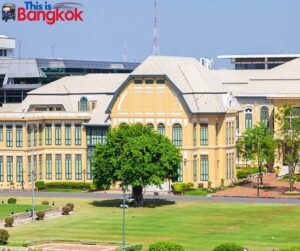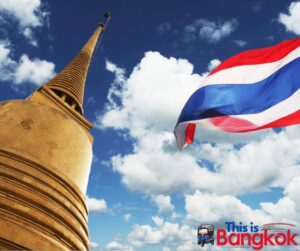Bangkok, the vibrant capital city of Thailand, beckons travelers from around the globe with its unique blend of ancient culture and modern amenities.
However, before packing your bags and exploring the city’s bustling street markets, serene temples, and irresistible street food, it’s essential to understand the passport and visa requirements clearly.
This guide is designed to provide you with all the necessary information to ensure a smooth, hassle-free journey to Bangkok.
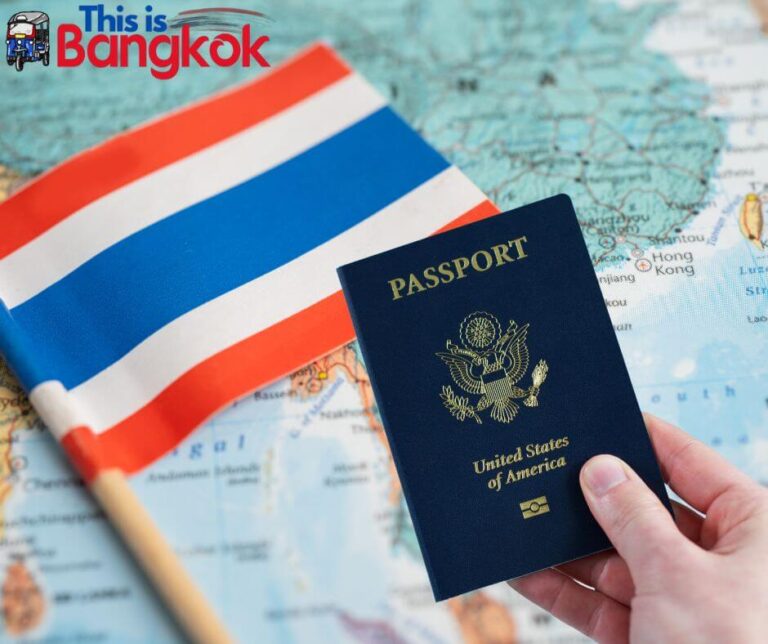
Passport Requirements
To travel to Bangkok, Thailand, you will need a valid passport.
Most countries require that your passport be valid for at least six months beyond your intended departure date from Thailand.
You must check your passport’s expiration date and renew it before your trip.
Visa Requirements
Whether or not you need a visa to enter Thailand depends on your nationality and the purpose of your visit.
To ensure you have the latest information on entry requirements and visa regulations, it’s recommended to contact your nearest Thai embassy or refer to the official website of the Thai Ministry of Foreign Affairs.
Generally, travelers from countries such as the UK, the US, Australia, and the EU can enjoy visa-free access to Thailand for up to 30 days.
If you plan a more extended stay, you can apply for a 60-day visa at the Thai embassy.
Additionally, if you need to extend your stay further, you can request a 30-day visa extension at the immigration office, subject to a fee.
Remember that visa policies can evolve, so staying informed about the latest updates is wise before traveling to Thailand.
Thailand offers visa exemptions and visas on arrival for citizens of certain countries.
Additionally, some nationalities must obtain a visa before arriving in Thailand.
Visa Exemption:
Citizens of many countries can enter Thailand for short visits without obtaining a visa in advance.
The length of stay allowed under visa exemptions varies, generally around 30 days.
Please note that this exemption might not apply if you’re entering Thailand for specific purposes like work, business, or long-term stays.
Visa on Arrival:
Some nationalities not eligible for visa-free entry can obtain a visa on arrival at certain international airports in Thailand, including Suvarnabhumi Airport in Bangkok.
Tourist Visa:
If you plan to stay in Thailand longer, you might need to apply for a tourist visa before you travel.
Tourist visas usually allow for stays of up to 60 days and can sometimes be extended while you’re in Thailand.
Other Types of Visas:
For purposes such as business, work, study, or retirement, you’ll need to apply for specific types of visas that match your intended activities in Thailand.
Each type of visa has its own requirements and application process:
Single Entry Tourist Visa (SETV):
A Single Entry Tourist Visa (SETV) allows you to enter a country, typically for tourism purposes, only once during the visa’s validity period.
The Single Entry Tourist Visa is designed for travelers who plan to visit Thailand for tourism, medical treatment, or other non-business activities. It grants the holder a single entry into Thailand and allows them to stay for up to 60 days.
If you need to stay longer, you can apply for a 30-day extension at a Thai immigration office within Thailand.
The Single Entry Tourist Visa generally requires you to apply at a Thai embassy or consulate in your home country before traveling.
Multiple Entry Tourist Visa (METV):
A Multiple Entry Tourist Visa (METV) is a type of visa that allows you to enter a country multiple times within a specified period.
In the case of Thailand, the Multiple Entry Tourist Visa allows you to enter and exit Thailand multiple times during its validity period.
This type of visa is helpful for travelers who plan to visit Thailand several times within a specific timeframe.
Each entry typically allows a stay of up to 60 days, and you can extend your stay with a 30-day extension if needed.
The METV is particularly beneficial for those who intend to explore neighboring countries and return to Thailand during their travels.
Similar to the SETV, you must apply for a Multiple Entry Tourist Visa at a Thai embassy or consulate in your home country before traveling.
Visa Runs:
A “visa run” refers to leaving a country, typically to a neighboring country, and then returning to reset the duration of your stay on your visa.
This practice is often employed by individuals who wish to extend their stay in a country without obtaining a more long-term visa or going through the visa renewal process.
For example, if you have a tourist visa that allows you to stay for 60 days, you might leave the country and return before the 60 days are up, effectively getting another 60-day stay.
However, it’s important to note that visa runs are subject to scrutiny and regulations by immigration authorities. In some countries, including Thailand, immigration officials have become stricter in enforcing rules related to visa runs.
They might deny entry to individuals who appear to be using this practice to live in the country on tourist visas without following proper immigration procedures.
Before considering a visa run, it’s crucial to research the latest regulations, policies, and potential risks associated with this practice in the country you intend to visit.
It’s also important to remember that immigration policies can change, so staying informed and compliant with the latest rules is essential.
How to extend a visa in Thailand?
Prepare to journey to the esteemed Thai Immigration office.
Arm yourself with the documents of destiny, and be ready to bestow THB 1,900 upon the visa-extension deities.
These mystical offices are scattered across cities like Bangkok, Chiang Mai, and Phuket.
Each visa category has its spellbinding list of required documents, so choose your category wisely and procure the proper paperwork.
What do I need to extend my visa to Thailand?
Curious about the visa-extension recipe for Thailand? Here’s your shopping list:
- Passport: Your VIP ticket to the land of adventure.
- 1,900 Baht: The golden key to unlock your visa extension.
- Application Form: A treasure map found at the immigration office.
- Passport Photo: A snapshot-sized piece of the visa puzzle (3.5 cm x 4.5 cm).
- Passport Photocopy: A photocopy of your passport’s front page – like a magical mirror.
- Visa Stamp and TM6 Card Photocopy: Capture your visa’s stamp of approval and your trusty Departure Card in a photocopy spell.
With these mystical items in your possession, you’ll be armed to embark on your visa extension quest in the enchanting realm of Thai bureaucracy.
Can I extend a 90-day Thai visa?
This visa entitles its holder to enjoy a 90-day sojourn within the Thai realm, with the potential for a brief 7-day extension if desired.
It’s crucial to differentiate between the 90-day Non-Immigrant Visa and the standard Thai tourist visa.
Should your heart yearn for the latter, kindly contact the esteemed Thai Embassy or Consulate nearest your domain for counsel and guidance.
Do you need a visa for Thailand?
The answer to this question depends on two primary factors: your nationality and the duration of your stay.
Most nationalities are eligible for a visa exemption if traveling for up to 30 days, while some may also be eligible for a 60-day visa exemption.
If you need to stay longer than these time frames, you must obtain an appropriate visa in advance from a Thai embassy or consulate.
You can find more information about the specific requirements for each visa on the Ministry of Foreign Affairs website.
It’s important to note that all visitors must have a valid passport with at least six months remaining before expiration when entering Thailand, regardless of their purpose and length of stay.
Visitors should also know that Thailand may reject entry to those carrying passports from countries with strained diplomatic relations.
If you’re unsure whether you need a visa for your trip, it’s best to contact the appropriate Thai embassy or consulate in advance to confirm your eligibility and requirements.
In conclusion
It’s important to note that visa rules can change, and the specific requirements vary based on your nationality.
For the most accurate and up-to-date information, you should contact the Royal Thai Embassy or Consulate in your country or visit the official website of the Ministry of Foreign Affairs of Thailand.
Remember that immigration policies can change, so always verify the latest requirements before you travel to Bangkok or any other destination in Thailand.




